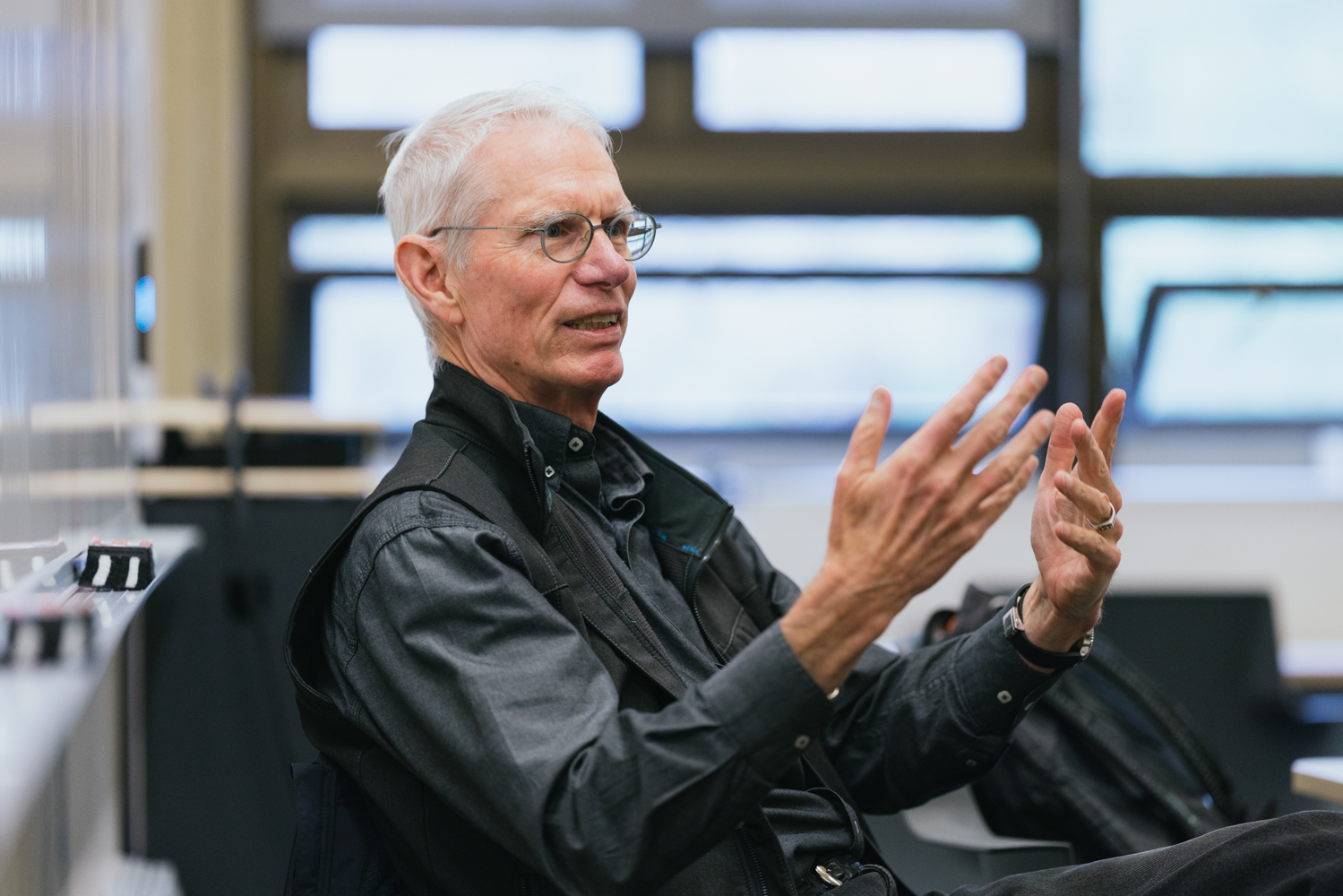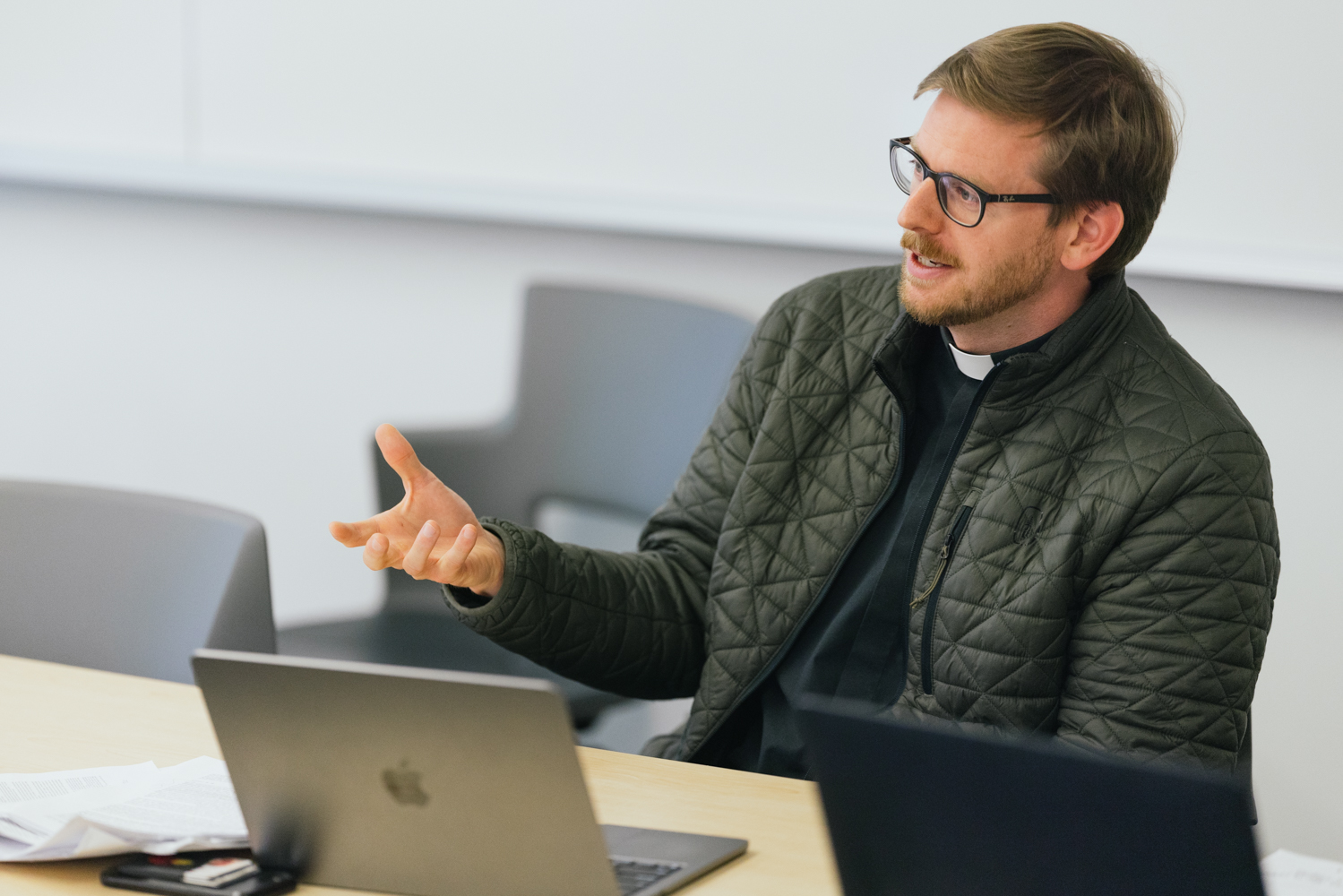In brief
- A fall quarter course uses Ancient Athens as a case study to explore practical and philosophical questions about how democracy functions.
- For ancient Athenians, political participation was intertwined with leading an ethical life; being part of a well-run society was seen as essential to human flourishing.
- At the heart of the decision-making process was the “demos” – the Greek word for people – and the “kratos” – the Greek word for rule.
- Knowing they would be called upon to deal with difficult issues had a profound effect on the way Athenian citizens related with the world around them.
With over 4 billion citizens in some 65 countries participating in an election in 2024, the year is being heralded as a historic period – and test – for democracy. In a winter quarter course at Stanford, students examined another important time for self-government: the fifth century BCE, when democracy first emerged.
Each week, Stanford political scientist and classicist Josiah Ober conjured what political life was like in the Greek city-state of Athens to the mix of undergraduate, graduate, and postdoctoral students taking POLISCI 231A: Democracy Ancient and Modern: From Politics to Political Theory. Ober drew on texts by contemporary Greek historians and political theorists who focus on ancient democracy to explore with students some of the issues ancient Athenians grappled with as they put self-government into practice.
For Ober, who has studied ancient and modern political thought for over four decades, ancient Athens makes for an interesting case study for students and scholars to examine how democracy functions and the different forms this mode of government can take.

In a winter quarter course, political scientist and classicist Josiah Ober teaches students about the foundations of democracy. | Andrew Brodhead
“It gives you these possibilities of the different ways democracy could be done,” said Ober, the Markos & Eleni Kounalakis Chair in Honor of Constantine Mitsotakis in the School of Humanities and Sciences. “History gives you some advantages to test a political theory and find out if it could possibly work.”
Other ways to do democracy
In running their democracy, ancient Athenians did many things differently that students considered closely throughout the course.
For one, the political life of its citizens was incredibly active.
Unlike the American system of representative democracy, where citizens vote for elected officials to represent their concerns in government, rule in Ancient Greece was direct: Participation was not a choice but a civic duty.
For ancient Athenians, being political was intertwined with leading an ethical life: Being part of a well-run society was seen as essential to human flourishing.
As Ober explained, by the time an Athenian citizen was 30 years old, it was highly likely they had already participated in the Assembly – the governing body where 5,000 or 6,000 citizens regularly met to vote on important issues of the day – or even served on the Council, a group of 500 citizens randomly chosen by lottery to serve 10-month terms to help set the Assembly’s agenda (ancient Athenians frequently drew on lotteries to distribute civic responsibilities among its citizens; in the U.S., they are scarcely used – the only thing close is jury duty).
For Athenian citizens, knowing they would be called upon to deal with difficult issues and decisions – like whether to go to war – had a profound effect on the way they related with the world around them.
“The way in which Athenians conducted their lives was highly influenced by the fact that they were going to have some real responsibility for their community,” Ober said. “When an Athenian went to the Assembly and voted for war, he was sending himself to war.”
Democracy isn’t something that is inherent or is going to be given to you. It’s something that you need to work at.”Cameron Adams, ’24Senior majoring in political science
At the heart of the Assembly’s decision-making process was the “demos” – the Greek word for people – and the “kratos” – the Greek word for rule (the etymological root of democracy comes from these two words).
In a class seminar devoted to deliberation, Ober described how the citizen Assembly made decisions and how those decisions represented the will of the demos, the collective judgment of the people about the best available course of action. The class then discussed some of the tensions that arise when conceptualizing a large, diverse population as a monolithic entity.
They also debated questions about accountability. If the decisions made by the Assembly were that of the demos, did that mean that individuals were no longer responsible for the decisions they contributed to making? Which raised another question: What does a democracy look like when officials are accountable to the people, but “the people” are accountable to no one?
Tackling complex questions like these – which are political, philosophical, and practical in nature – formed the basis of many of the students’ discussions.
For Michael Thomas, a second-year PhD student who took the course, examining how the ancient Greeks approached civic engagement and education has made him think about what could happen if American society did something similar.

Michael Thomas is a second-year PhD student in the Department of Political Science. | Andrew Brodhead
“We ask ourselves a lot about how to do democratic education and a great deal of it for the Greeks was by doing, such as governing through the Assembly and holding office,” Thomas said. “I think people would feel more committed to democracy if they experienced it in their own lives through participating in collective action.”
Learning from limitations
But not everyone in ancient Athens was able to participate in political life.
Excluded from the franchise were women and slaves – not too dissimilar to the limitations America’s Founding Fathers set when they wrote the Declaration of Independence, Constitution, and the Bill of Rights in the late 18th century.
For political science major Cameron Adams, ’24, learning how Athenians restricted democratic participation has helped them better understand barriers in American democracy.
“We modeled our democracy after Athenian democracy, which was flawed, so it makes sense that our system is flawed,” said Adams, who took two of the courses Ober taught in winter quarter.
I think people would feel more committed to democracy if they experienced it in their own lives through participating in collective action.”Michael Thomas Second-year PhD student in the Department of Political Science
Even with a series of reforms in the 20th century that expanded and protected U.S. voting rights to include women and people of color, there are still groups of Americans today who are ineligible to participate in an election. For example, people with a criminal conviction may be blocked from voting in their state. People have also become disenfranchised by being forced to face long wait times at polling stations or not being provided enough places to vote.
While learning how ancient Athenians grappled with who was and was not able to participate in democratic life, Adams considered contemporary problems like these. One essay Adams read that they found particularly relevant examined the ways in which women and slaves in ancient Athens found ways to speak out against the injustices they faced.
“It illuminates that democracy isn’t something that is inherent or is going to be given to you,” Adams said. “It’s something that you need to work at.”